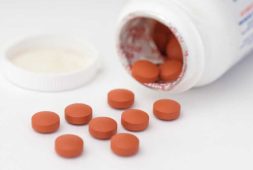9. You Have an Addiction

The majority of prevalent mental diseases, ranging from sadness and anxiety to PTSD, are related with sleep disruption, and substance use disorders are no exception. The relationship may be complex and bidirectional: substance use causes sleep issues, but insomnia and lack of sleep may also be a risk factor for drug use and addiction. Recognizing the significance of this previously neglected element, addiction experts are paying closer attention to sleep and sleep disruptions, and are even considering approaches to target sleep disruption in substance use disorder therapy and prevention. We now know that most types of substance use severely disturb the brain’s sleep-regulatory mechanisms, impacting the time it takes to fall asleep (latency), sleep duration, and sleep quality. Drug users frequently experience sleeplessness during withdrawal, which drives drug cravings and can be a major cause in relapse. Furthermore, because sleep is so important in consolidating new memories, a lack of quality sleep may make it more difficult to develop new coping and self-regulation skills required for recovery. The neurobiological pathways that link various types of drug use and sleep disorders are becoming better understood. Dopamine, for example, is a neurochemical that is essential for understanding the link between substance use disorders and sleep. The direct or indirect stimulation of dopamine reward pathways by drugs is responsible for their addictive qualities; nevertheless, dopamine also affects attentiveness and is involved in the sleep-wake cycle. Dopaminergic medications are used to treat alertness and arousal problems such as narcolepsy. Cocaine and amphetamine-like compounds (such as methamphetamine) are among the most effective dopamine-inducing substances, and continuous usage can result in severe sleep deprivation. Sleep deprivation, in turn, downregulates dopamine receptors, making people more impulsive and prone to drug use. The causal association between poor sleep and drug misuse/addiction can also be reversed. People who suffer from insomnia may be at a higher risk of substance abuse because they may self-medicate their sleep issues with alcohol or other medications that they perceive as calming, such as benzodiazepines. Alternatively, they may utilize stimulant medicines to compensate for daytime lethargy caused by sleep deprivation. Impaired sleep may also raise the risk of drug use through other mechanisms, such as impaired cognition. As a result, sleep problems and other impediments to adequate sleep are crucial issues to target in prevention.



